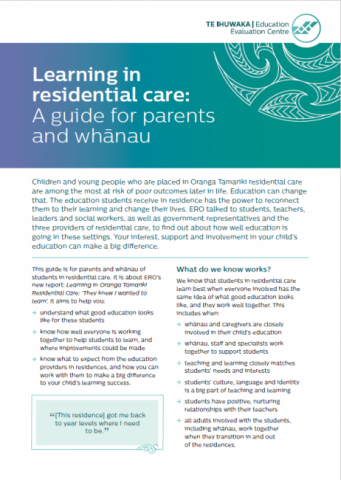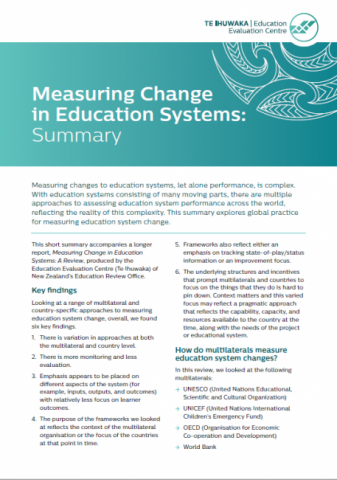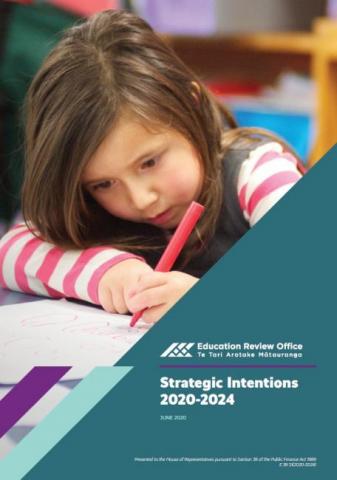ERO Special Review: Central Regional Health School - Te Au Rere a te Tonga, Epuni
Published: 28 Jun 2021
This ERO summary report focuses on how Central Regional Health School supports positive outcomes for ākonga in Oranga Tamariki residences.
- Audience:
- Academics
- Schools
- Content type:
- Basic page










